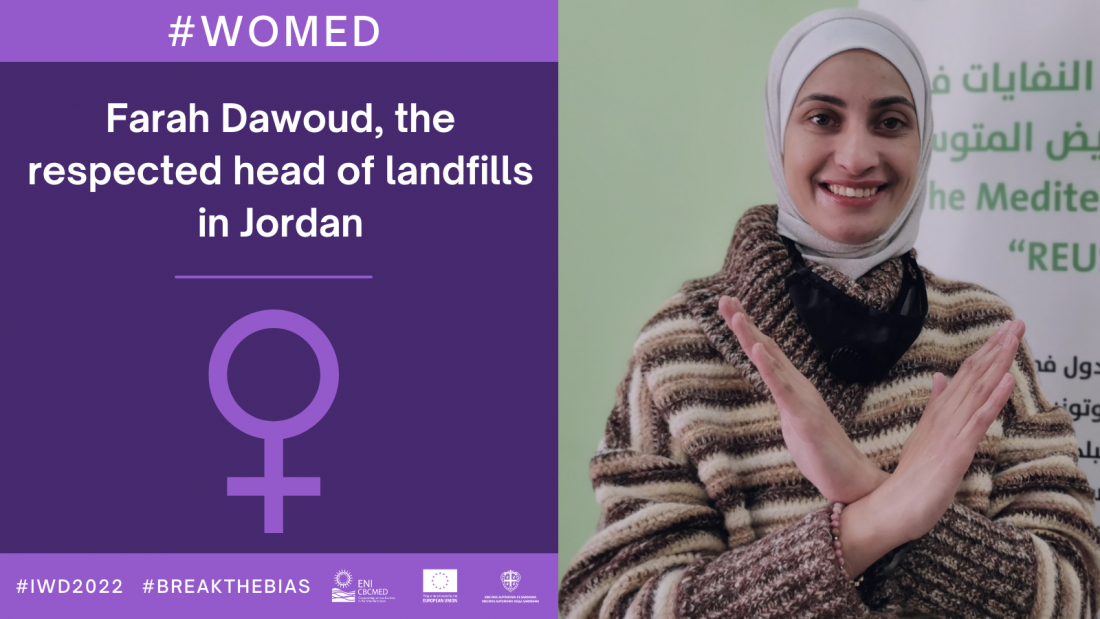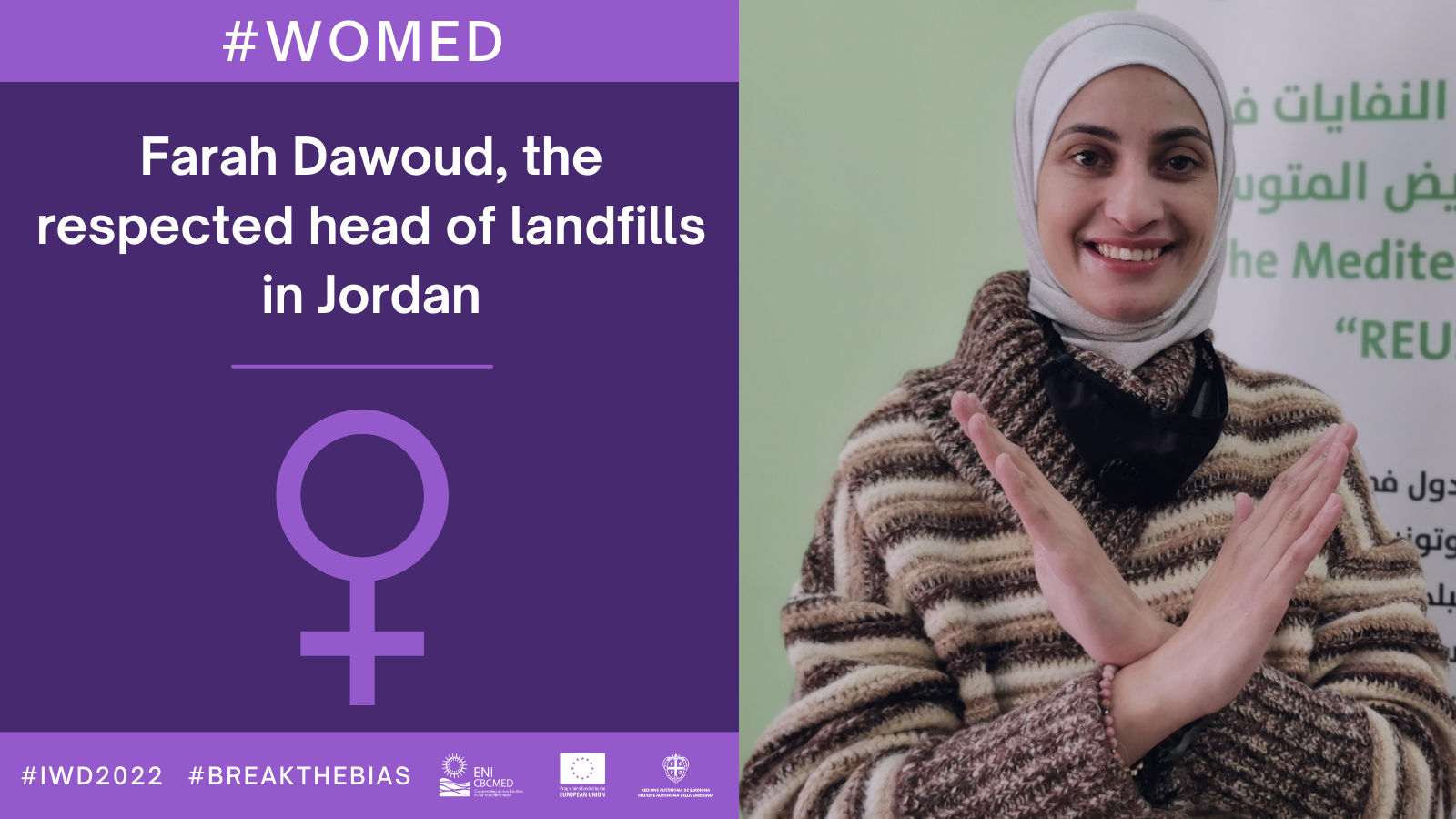#WOMED - Diploma and skills, drivers to break the stereotype of a woman holding waste management position: discover the story of Farah Dawoud, Jordan

This is the fifth instalment in our series of seven feature stories published in the framework of the International Women’s Day to highlight women who have succeeded in breaking stereotypes in their community also through their participation in ENI CBC Med funded projects.
Farah Dawoud is the head of Landfills and Transfer Stations division in the Solid Waste Management Department at the Jordanian Ministry of Local Administration. She studied civil engineering and then did a master in renewable energies. She is also the contact person at the Ministry for REUSEMED project.
Nowadays, in most Arab countries, girls studying STEM (Science, Technology, Engineering and Mathematics) is quite common. The gap arises when these women ‘armed’ with their university degrees want to enter the labour market. Getting married and having children is probably one of the main barriers for them to reach interesting job positions or aspire to develop their career.
Farah also draws the attention that not all engineer specialities face the same problem. A chemical or industrial engineer means a lot of office work while civil, mechanical, or electrical engineers’ jobs involve more work in the field, therefore there are more men in these sectors. So how did Farah manage to reach this position as responsible of landfills at the Ministry, visiting landfills in remote municipalities in Jordan until late hours?
But first, let’s think what makes the Jordanian society accepts more and more that women work in positions that were usually held by men until 10 years ago?
International donors and economic crisis push the society towards more gender balance at work
In 10 years, Jordan witnessed the arrival of 1.3 million Syrians in its territory for a population of 10 million. International donors started implementing programmes to support the Jordanian government in integrating Syrians refugees. In each programme, there is a “woman empowerment” component as Farah explains when mentioning the “Cash for works programmes”. This term refers to employment programmes that offer refugees and local population an opportunity to earn money. Through these programmes, women started to be trained in jobs usually associated to men such as electricians, plumbers, etc.
The economic crises added a component to the “break the bias” as the cost of living rose a lot in Jordan so there is no other choice than counting on a second salary to pay the bills.

“Since the beginning, my degree has been the best asset that enabled me enter the Ministry, work there and develop my career.”
Hardworking and updating skills are key elements
In the case of Farah, working hard over the last 12 years at the ministry built her reputation and make her known for her skills. She also decided to start a master degree in renewable energy, a new speciality in Jordan as part of her will to enlarge her competences and be aligned with the world’s challenges of today: climate change and green economy.
Towards the end of 2017, when the Ministry decided to create the division of solid waste management and decision makers knew that Farah was doing this master degree which is aligned with the priorities of the Ministry and knowing how she works, they decided to appoint her as head of landfills and transfer stations.
Farah working in the field in Jordan
“How can a woman be head of landfills, this is something really strange in the Jordanian society.”
Woman and head of landfills?
When people think of jobs in waste management, they usually picture people collecting waste and trucks bringing it to landfills. They don’t think that this kind of jobs requires technical and scientific skills, planning in order to have healthy and working infrastructures. It also requires getting citizens involved, organising raising awareness campaigns. That’s what Farah tries to explain to break the idea that people associate to waste management. She faces more challenges in dealing with long procedures and lack of technical skills than discrimination at work or lack of respect.
From recycle to reuse: break the stereotype again
In the framework of REUSEMED, Farah is so glad to promote the culture of reuse. She is proud of the women of Deir Alla Municipality, north of Jordan (one of the participating regions in the project) as they are already quite aware and organised in order to implement the circuits of reuse, identifying collecting points, organising the repairing and the places where end users can reuse these products. She sincerely hopes that this experience can be replicated in more municipalities across the country and change the behaviour of today consumers’ society.










